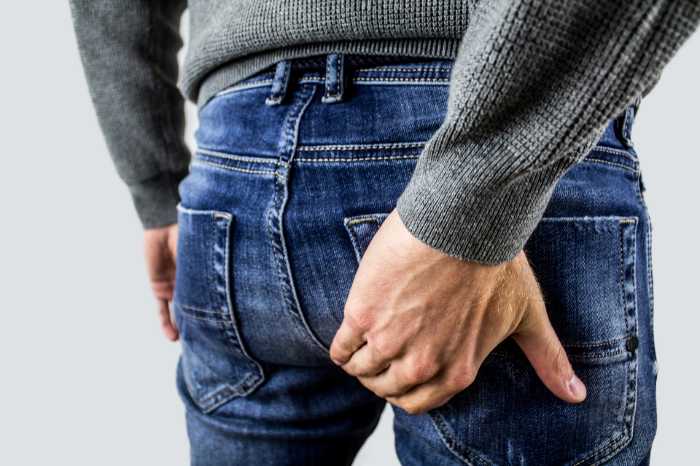Do you know what hemorrhoids are? Chances are, if you’re reading this blog post, you probably do. But just in case you don’t, hemorrhoids are swollen veins that can be found in and around the anus. While they are not typically a serious condition, they can be quite uncomfortable. In this blog post, we will discuss 10 symptoms of hemorrhoids that you should watch for. If you experience any of these symptoms, make sure to see your doctor right away!

Internal Hemorrhoids
Internal hemorrhoid is a common condition that can cause bleeding from the rectum or anus. They occur when the veins in these areas become swollen and enlarged. Although internal hemorrhoids are not usually painful, they can be uncomfortable and may bleed during bowel movements. On the other hand, prolapsed internal hemorrhoids can be quite painful. Several treatment options are available for internal hemorrhoids, including dietary changes, over-the-counter medications, and surgery.
In most cases, internal hemorrhoids can be managed successfully with lifestyle modifications and medical treatment. However, in some cases, surgery may be necessary to remove the hemorrhoids. If you are experiencing symptoms of internal hemorrhoids, it is important to see your doctor for an evaluation.
External Hemorrhoids
External hemorrhoids happen when swelling occurs in the veins of the anus and rectum. They can be itchy and painful and may bleed during a bowel movement. Hemorrhoids are common, affecting up to 25% of adults. There are two types of external hemorrhoids: thrombosed and “unthrombosed.” Thrombosed hemorrhoids occur when a blood clot forms in the vein. This can cause severe pain and swelling. “Unthrombosed” hemorrhoids do not have a blood clot but may still bleed. Treatment for external hemorrhoids includes home remedies to reduce symptoms, such as soaking in a warm bath or applying a hemorrhoid cream or ointment. Surgery is rarely needed. If you have severe pain or bleeding, see your doctor for treatment.
Symptoms Of Hemorrhoids
Hemorrhoids are usually caused by increased pressure on the veins in the pelvis, which can be from pregnancy, childbirth, weightlifting, or sitting for long periods. Internal and external hemorrhoids usually come with different symptoms.
Some hemorrhoid symptoms include:
- Itching in the anal area
- Pain in the anal area
- Bleeding during bowel movements
- Swelling in the anal or rectal area
- Lump near the anus
- Discomfort when sitting or standing for long periods
- Leakage of feces
- Pain during bowel movements or intercourse
- Bleeding from the rectum
- Inflammation around the anal area

If you experience any of these symptoms, it is important to see your doctor for an evaluation. hemorrhoids can often be treated successfully with lifestyle changes and medical treatment, but in some cases, surgery may be necessary.
Causes Of Hemorrhoids
Hemorrhoids are often the result of straining during bowel movements, pregnancy, or childbirth. Other causes include obesity, sitting for long periods of time on the toilet, anal intercourse, and chronic constipation. Hemorrhoids can be either internal, located inside the rectum, or external, located under the skin around the anus. If left untreated, hemorrhoids can bleed, itch, and cause pain and discomfort.
How To Get Hemorrhoids Diagnosed
Anyone can get hemorrhoids, but they are more common in adults over the age of 30. Hemorrhoids can be either internal or external. Internal hemorrhoids are located inside the rectum, while external hemorrhoids develop around the anal opening. In most cases, hemorrhoids are not a serious medical condition and will go away on their own. However, if you experience severe pain, bleeding, or itching, it is important to see a doctor for a proper diagnosis.
There are a few different ways that doctors can diagnose hemorrhoids. A digital rectal exam (DRE) is often used to check for internal hemorrhoids. During a DRE, a doctor will insert a gloved finger into the rectum to feel for any lumps or swellings. In some cases, a visual examination may be enough to diagnose hemorrhoids. External hemorrhoids are usually visible to the naked eye and can often be diagnosed without any further testing. If internal hemorrhoids are suspected, a colonoscopy or sigmoidoscopy may be necessary to get a clear view of the rectum and anus. Once hemorrhoids have been diagnosed, treatment options can be discussed with your doctor.
How To Treat Hemorrhoids
Hemorrhoids are a typical illness that can cause discomfort, itching, and bleeding. When the blood vessels around the anus or rectum become engorged and inflamed, hemorrhoids tend to occur. Although hemorrhoids are most commonly caused by straining during bowel movements, they can also be brought on by pregnancy, anal sex, or sitting for long periods

Fortunately, there are several things you can do to treat hemorrhoids and relieve your symptoms. For example, you can try creams or ointments to soothe the itchiness and pain. You can also take baths in warm water to reduce swelling. If home remedies don’t work, you may need to see a doctor for more aggressive treatment options like prescription creams or surgery. With the right treatment, hemorrhoids can be effectively managed and may eventually go away on their own.
Health Tips To Prevent Hemorrhoids
There are several things you can do to treat hemorrhoids and prevent them from getting worse. Here are some tips from colon and rectal surgeons:
- Drink plenty of fluids, at least eight glasses of water a day, to help soften your stools.
- Add fiber to your diet by eating more fruits, vegetables, whole grains, and beans. This will help make your stools softer and easier to pass.
- Avoid straining during bowel movements. This puts extra pressure on the veins in your anus and can make hemorrhoids worse.
- Don’t sit on the toilet for long periods of time. This can also increase the pressure on the veins in your anus.
- If you have hemorrhoids, try using over-the-counter creams or ointments to help relieve the pain and itching. If these don’t work, talk to your doctor about other options, such as prescription medications or surgery.
Final Thoughts
Though hemorrhoids are a nuisance, they are relatively easy to treat. The best way to prevent them is to eat a healthy diet and avoid straining during bowel movements. If you do develop hemorrhoids, there are many effective treatments available, from over-the-counter creams to surgery.
In most cases, hemorrhoids can be treated at home without the need for medical intervention. However, if you experience severe pain or bleeding, it is important to see a doctor as soon as possible. With the right treatment, hemorrhoids can be managed effectively and with minimal discomfort.
Read More: